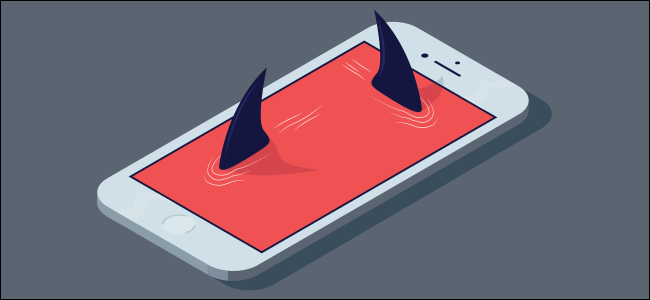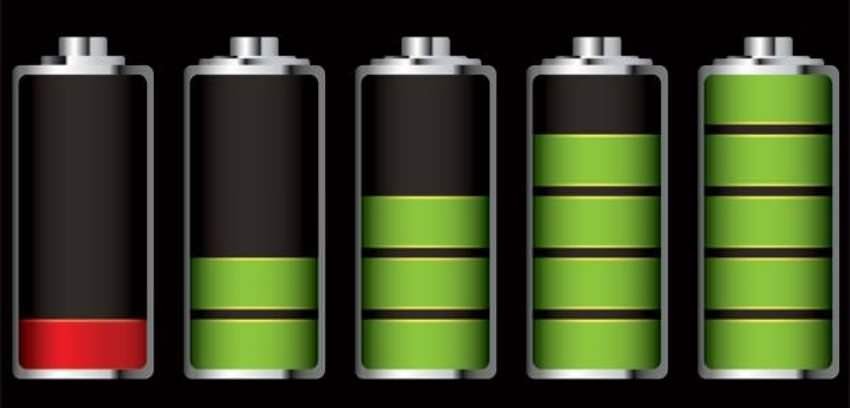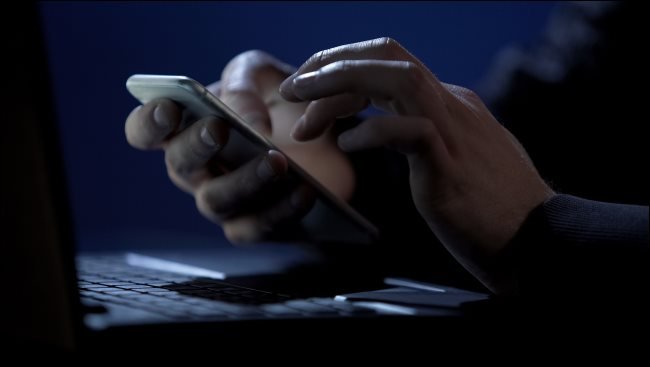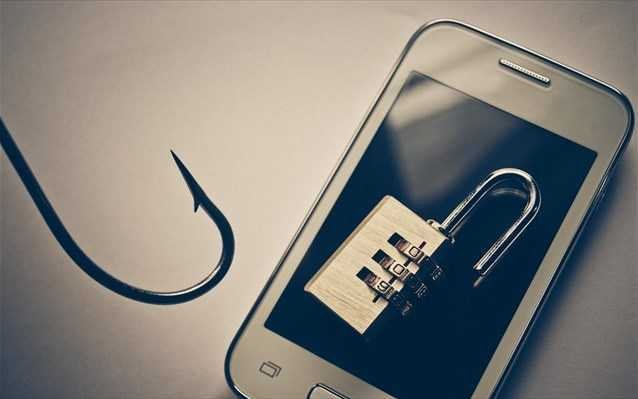How can you tell if your phone has been compromised? Can you find the responsible software? Learn the warning signs and what you can do.

Most users know that cell phones can act as spies on their owners. Surely the providers and by extension the governments, can know our stigma and listen to our conversations. All right, at the behest of a prosecutor. But is it just them?
And other people can have the upper hand on your smartphone. This includes them hacker, your employer, a former co-worker, your ex or even the press. In a hacked phone they can listen to your calls, read and send sms and emails or change information in your interface. But how do you know if your phone has been hacked?
See how you can find out if your cell phone is possibly broken.
1. Battery problems
Hot batteries remain a concern when it comes to smartphones.
You are probably familiar with battery overheating and do not pay attention to it. You may even have visited an electronics store and complained about the problem.
In most cases, the clerk will simply tell you that this is a standard issue for a smartphone. Apple, for example, usually only worries if your device shuts down on its own when it warms up.

Why does your smartphone get so hot? Using multiple applications and consuming constantly will make your handset warmer, but this is not enough to cause damage to turn off the phone.
However, a hot battery can also be a sign of your cell phone being monitored. Malware can run continuously in the background, allowing another person to monitor you.
And be suspicious if your phone just does not hold the charge as it used to.
Watch your phone: remember which apps you have used and how they affect your battery. If the battery is constantly running low, even though you do not use it as often, it is very strange to ignore it.
If you have an old phone you better see your battery status first. Older phones did not charge as much as newer models, which have lithium batteries, so you need to eliminate other possibilities before looking for bad intentions.
Note other reasons why your headset may be hot. Have you sunbathed with it with him? Have you used many applications in a row? Does the phone case insulate heat internally?
High temperatures and low power however can be indicative of malware. Next, you need to watch out for other signs on your phone.
2. Increased use of mobile data
Tracking your phone bills can save you a lot of money. But it can also help you detect spyware.
Countless applications use huge amounts of data, especially if you do not connect to free public Wi-Fi. It is even worse if you let your children use your device while you are away from home. However, you should know about how much data you use each month.

If this amount increases dramatically, you must limit it on the one hand, and find out why this is happening on the other. If you can't find the reason, a third party may be stealing your messages.
The malware uses your data limit to send the information it has collected to an external source. This means that it is not based solely on your home Wi-Fi. It will consume data wherever you are.
3. Unwanted ads and applications
You can easily get acquainted with the operating systems of a phone, which means that you will install a lot of applications and just leave them there.
But it is imperative to know exactly what is on your phone, especially the applications running in the background. If you have not installed them yourself, it could be malware.
Your phone doesn't have to be jailbroken to download fake apps. Every now and then both Google and Apple announce dangerous apps that are legitimately running on their network (until they discover them).
Such applications are usually adware that show malicious ads to users, but they could very well be used to collect data and open a back door to hackers.
These ads could be intrusive to encourage victims to click on them even if by mistake, and to generate pay-per-click revenue.
Remember that clicking on any link can lead to more malware.
These apps may even be removed by Google or Apple, but if they exist on your phone they can spy on you just fine.
Malicious software can generate a lot of traffic to ads and thus further increase data usage.
4. General Performance Issues
The more data used, the slower your device will be.
Malicious software can gain root access to your smartphone or to you cheat to download a fake system update for complete control over your activities. Information about the victim could then be transmitted to the hacker 's external servers.
Consider all this information transmitted to and from your device. This will slow down your device and you may think it's just that your phone is getting old…
Of course, real applications will consume power and resources from your phone, but logically they should not significantly affect the response time of your device.

You can control which applications use the most RAM.
On iOS, you just need to go to Settings> General> iPhone Storage. On Android, you can do this via battery. Go to Settings> Battery and see which applications consumed power in the last hour. From here, you can properly evaluate your battery usage and check for any applications that do not look normal.
5. Strange messages may indicate telephone monitoring
A phone call you may receive as an unwanted, annoying or wrong number can be a warning that something is wrong.
Suspicious SMS could contain seemingly random series of digits, characters and symbols, which will immediately impress you as strange but perhaps not particularly malicious.
Do not ignore suspicious messages.
The most likely cause for this is a bug in spyware used by cyber criminals. If it is not installed correctly, encrypted messages will appear in your inbox that would otherwise go unnoticed.
These random datasets are instructions sent by a hacker's server. Alternatively, it may be the application that is trying to communicate with its creator.

Likewise, if any family or friends say that you are sending them strange messages or emails, your phone may have been compromised. This could mean that your infected phone is trying to install malware on your loved ones' devices.
Watch out for any activity you do not recognize. Look at your messages, social media profiles and check your folder and inbox. If you do not remember sending something, be suspicious.
6. Sites look different
Staying alert could save you a lot of trouble.
Phishing is a scam we all know, but no one is infallible. We all forget tips and make mistakes. If you make the mistake of clicking on a URL in a text or email, which at first glance seems normal but is not, it can cost you a lot.
You do not even need to be redirected to a fraudulent link via message. If there is a malicious application on your phone, it could change the look of the websites you visit.
The malware acts as a proxy server, blocking communications between you and the website you're trying to visit, especially if it's banks. It may present you with a fake page or simply track everything you type. And no, it doesn't matter if you use private browsing.

This really becomes a problem if you use online bankingnetwork or anything else that requires personal information. This could be a password, financial details or simple personally identifiable information.
You may not notice any differences. The differences could only be small subtle changes. And if you see something strange, it could be the site experimenting with a new look. Compare the mobile version with the one shown on a computer, keeping in mind that the look may be slightly different.
There is malware that emulates your bank page and waits for you to enter your passwords. after receiving your codes they refer you to the website of the regular bank.
7. Use passwords to divert calls such as * # 21 #
This only works on Android phones, but it's the perfect way to find out if any of your data is being forwarded to a third party.
Just switch calls as if you were making a phone call and type either:
* # 21 # (code for call divert control), or
* # 67 # (code for call divert control when you are busy) or
* # 61 # (call divert control code when you do not answer), then press the call icon.
The above codes refer to the Wind provider but are almost the same everywhere. See the corresponding ones in your provider (Vodafone, Cosmote etc), they apply to all devices, all three have the same function: they direct you to a screen that contains details for call forwarding.
If you see call forwarding without you having done so, then your phone has probably been compromised.
If so, consult your provider's website to stop call forwarding and see which software was responsible on your phone. Change all your passwords, especially on social media, emails and banks.
Finally, install an antivirus application on your phone.
How can you tell if your phone has been compromised?
Do not be too paranoid. Most of you are not a victim of a phone harassment. Nevertheless, it is worth keeping in mind some basic safety precautions.
Reduce the risk of infection only by downloading from official app stores. Apple and Google are supposed to test apps and games before making them available to the world, although they sometimes withdraw them, but this is rare.





